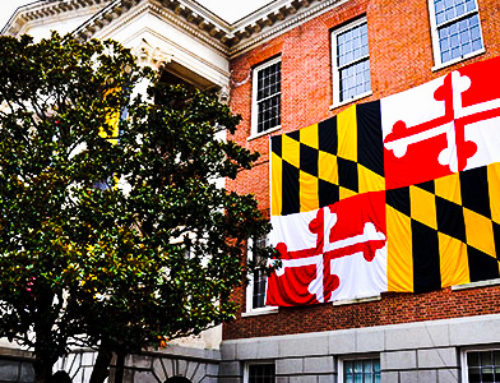View by Topic
Recent Articles
-
President Trump’s Bold Step to Rein in State Overreach in Climate ChangeSaturday, April 12th, 2025
-
Mandatory GHG Disclosures in Maryland Real Estate ContractsSaturday, April 5th, 2025
-
NYC Building Electrification Ruling is Interesting But Not a Game ChangerSaturday, March 29th, 2025
-
Greenpeace Ordered to Pay $667M in Blow to ActivismSaturday, March 22nd, 2025
-
The Most Consequential Day of Environmental Deregulation in American HistorySaturday, March 15th, 2025
View by Month/Year
“Green Building Law Update” Headlines
Recent Articles & News from
Stuart Kaplow’s blog
at GreenBuildingLawUpdate.com
- President Trump’s Bold Step to Rein in State Overreach in Climate Change April 13, 2025
- Mandatory GHG Disclosures in Maryland Real Estate Contracts April 6, 2025
- NYC Building Electrification Ruling is Interesting But Not a Game Changer March 30, 2025
- Greenpeace Ordered to Pay $667M in Legal Blow to Environmental Activism March 23, 2025
Subscribe to the Green Building Law Update!
Stuart Kaplow brings his expertise and extensive experience to the table with his unique digital publication, "Green Building Law Update". Subscribers receive regular updates to keep them informed about important issues surrounding Environmental Law, Green Building & Real Estate Law, as well as the emerging demand for Environmental Social Governance (ESG).
Get fresh content through the lense of Stuart Kaplow's cutting-edge expertise, innovative commentary and insider perspective. Don't miss another issue! Subscribe below.
E-Signatures Now Bind Real Estate Contracts On The Web
Maryland has become one of the first states to grant electronic contracts the same status as pen and paper contracts with handwritten signatures.
Senate Bill 3 in the 2000 Maryland General Assembly Session, providing that a signature or record may not be denied legal affect or enforceability solely because it is in electronic form, received little attention on its June 1, 2000 effective date. However, with Congress’ June 16th enactment of the Electronic Signatures and Global and National Commerce Act, e-signatures are now among the hottest topics in cyberspace.
The new Maryland law defines an electronic signature as “an electronic sound, symbol, or process attached to or logically associated with a record and executed or adopted by a person with the intent to sign the record.”
An electronic record is defined as “a record created, generated, sent, communicated, received or restored by electronic means.”
The law applies to transactions when both parties have agreed to conduct transactions by electronic means. But the law is clear, an agreement to conduct a transaction electronically may not be inferred solely from the fact that the party has used electronic means to pay an account or register a purchase warranty.
If the general law requires a signature or record to be notarized, acknowledged, verified, or made under oath, the new statute recognizes the electronic signature of a person authorized to perform those acts for electronic signatures (i.e., e-notary seals are recognized).
A general law requiring that a record be retained is satisfied by retaining an electronic record that accurately reflects the information in the record and remains accessible for later reference. The record retention in this matter would satisfy a law requiring a record to be presented or retained in its original form.
The bill excludes transactions covered by parts of the Maryland Uniform Commercial Code; laws governing the execution of wills; and laws or regulations governing notice concerning the cancellation of utility services, rental and mortgage agreements for a primary residence, or the cancellation of health or life insurance.
The new statute is significant in that electronic commerce, including real estate transactions on the Web, had been hampered by earlier laws that required a writing, a signature, and a written record in order to enforce many commercial transactions. That is, transfers in interests in real property, sales of goods exceeding $500.00, leases of goods exceeding $1,000.00, and contracts that cannot be performed within one year, are all examples of contracts that, prior to the enactment of this new statute, required a writing, a signature and written record. These transaction may now take place with an e-signature on the Web.
Several states, including California, Florida, Illinois, Massachusetts, and Washington have enacted laws regulating the use of electronic signatures. The Uniform Electronics Transactions Act (UETA), upon which the bill was based, became available to states as a model statute in 1999 to govern the enforceability of electronic contracts and signatures. Congress, within days of the effective date of the Maryland statute, enacted legislation that establishes a nationwide minimum standard for electronic signatures and electronic records for states that have not adopted the UETA. The Maryland statute will, as an adoption of the UETA, supersede the application of the federal statute within Maryland and will ensure greater certainty in intrastate transactions.
This new statute will address the concerns of many businesses and consumers who were wary of conducting extensive business electronically over the Internet because of a lack of predictable legal environment governing transactions.
A number of companies are pioneering digital signature technology and within a matter of months it is anticipated that residential real estate settlements, including delivery of a deed and mortgages, will be conducted entirely electronically. This move to uniform standards for electronic residential real estate transactions is being largely driven by the secondary mortgage market.
It can be anticipated that e-signatures and electronic transactions will dominate the real estate industry within a matter of years.









